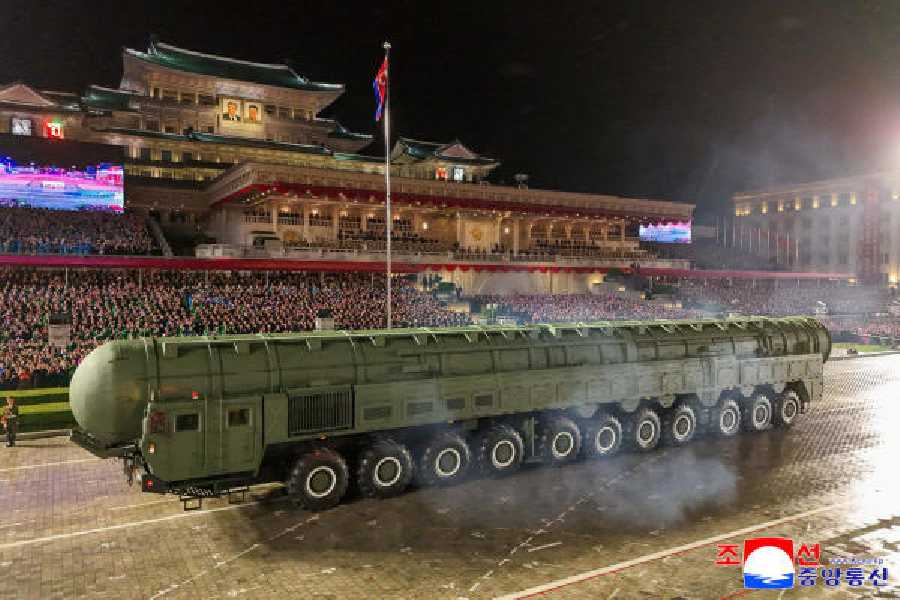Columns of goose-stepping soldiers and a procession of powerful nuclear missiles rolled through the rain-soaked capital of North Korea on Friday evening, as senior officials from China and Russia joined the country’s leader, Kim Jong-un, for a show of solidarity against the US-led global order.
Kim organised the enormous military parade at the main square of the capital, Pyongyang, to celebrate the 80th anniversary of his ruling Workers’ Party. He used the spectacle to show off his country’s growing geopolitical value as a partner to China and Russia in pushing back against the US.
Joining Kim on the viewing platform were Premier Li Qiang, China’s second-highest-ranking official; Dmitri Medvedev, the deputy chairman of the Security Council of Russia and a close ally of President Vladimir Putin; and To Lam, Vietnam’s Communist Party chief, according to images carried by North Korean state media on Saturday.
The parade was also an opportunity for Kim to highlight the deepening military ties between North Korea and Russia. North Korean soldiers who fought for Russia in its war against Ukraine joined the parade on Friday, carrying the flags of both nations. North Korea has provided Russia with 15,000 troops, according to South Korean officials, and large shipments of artillery shells, rockets and missiles.
The North Koreans will continue to “fulfil their responsibilities in the joint struggle of the progressive mankind for opposing injustice and hegemony and defending justice and peace,” Kim said in a speech before the military parade, a veiled show of defiance against the US-led West.
North Korea has long used military parades for domestic propaganda. They have become more frequent and bigger under Kim, who has also used them as a venue for brandishing new weapons to gain leverage against his enemies, like the US.
The weapons shown off on Friday included military drones, tanks with modern electronic warfare equipment and various missiles, including hypersonic ballistic missiles and Hwasong-20s, North Korea’s newest intercontinental ballistic missiles.
New York Times News Service










